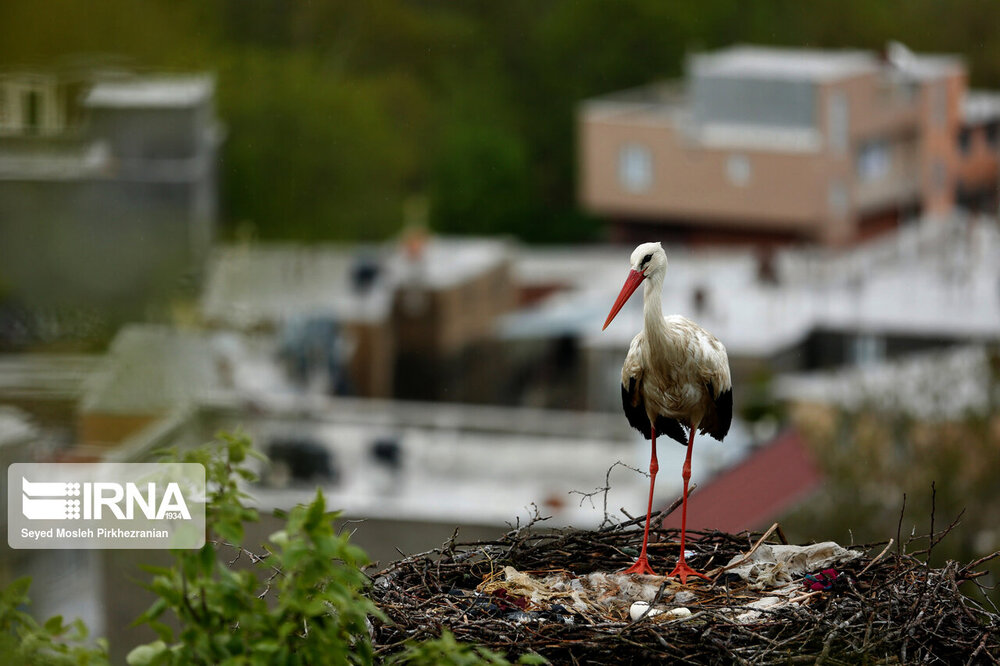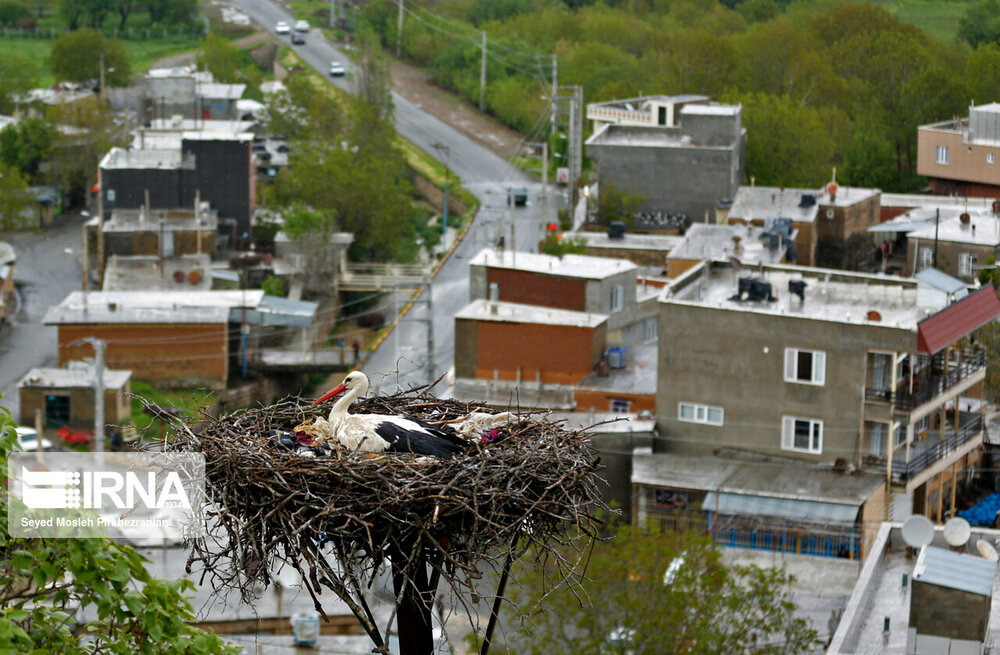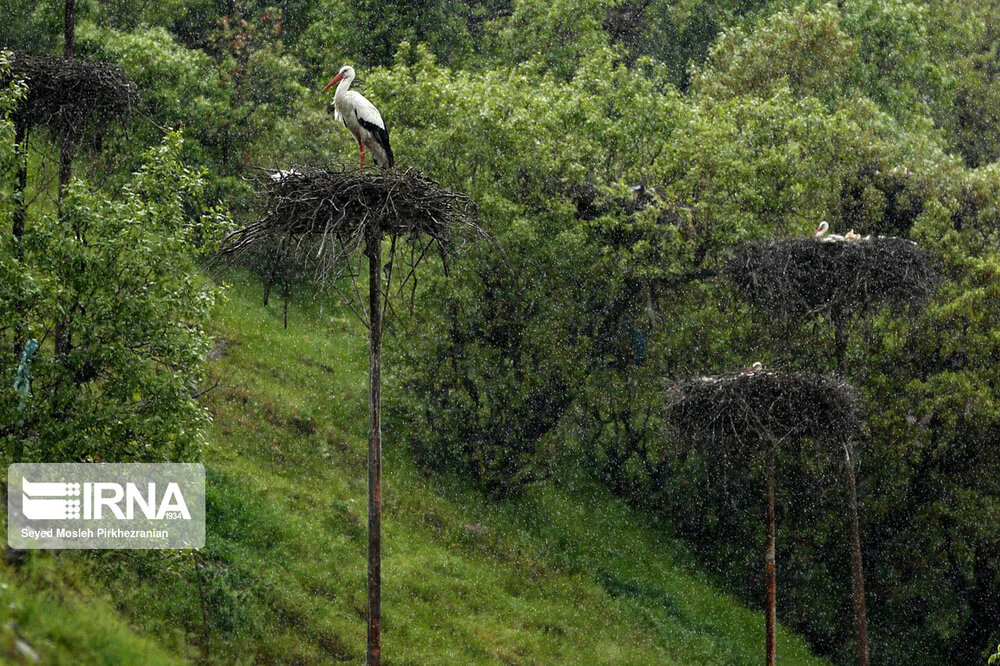Zarivar Lake hosting flocks of storks once again

TEHRAN – Zarivar Lake, a major tourist attraction in western Iran, is hosting again thousands of storks that wing their ways to make their nests around the lake’s mountainous areas, however, locals in surrounded villages have decided to build safer nests for them.
Darreh Tafi is a village near Zarivar Lake, which plays host to 60 pairs of stork and many tourists who come to watch stork nests and their newly hatched chicks.
Oak forests near Zarivar Lake are the main nesting spots for storks. Villagers on the outskirts of Zarivar Lake believe that white storks are a symbol of good fortune and peace, which is why the people of the villages around the lake build nests for these birds.
Over 700 storks nest in villages around Zarivar
Ebrahim Hemmat Boland, head of the Marivan department of environment, said that “Every year, the border city of Marivan welcomes thousands of white storks on the three sites of Bilo, Darreh Tafi and Qolqoleh.”
He went on to say that storks are migratory birds that come to Marivan every year for breeding and nesting and they have a very good ecological relationship with the people of the region and accept the prefabricated nests of the people without hesitation.
The village of Darreh Tafi annually hosts about 300 storks, Bilo village hosts about 400, and the village of Qolqoleh also hosts about 70 of white storks that begin to nest and reproduce, he explained.

“We annually monitor the health and reproduction status of the birds and encircle a number of chicks in the nests to assess migration status for behavioral studies, and to protect the birds’ habitat,” he highlighted.
Bilo site is now a hunting-prohibited area, which is likely to improve to the national natural monument in the coming years due to the presence of storks, the untouched oak forests and the diversity of plant and animal species, which will be one of the areas under the management provincial DOE, he explained.
The biggest and most important threat to these birds in the city of Marivan is the power transmission wires, several casualties are reported each year as a result of electric shocks, he lamented.
Locals are very protective of the storks and even during winter they take care of the vacant nests and prepare them for the storks’ return, and when they get hurt or injured everybody makes efforts to heal them, he concluded.

Storks are large, long-legged, long-necked wading birds with long, stout bills. They belong to the family called Ciconiidae and make up the order Ciconiiformes. Many species are migratory. There are nineteen living species of storks in six genera.
Myths about the storks’ immunity go back to ancient beliefs; in Egypt, it was believed that their souls were human, while in the ancient Greece beliefs storks have been protectors of elderly people and take care of the aged parents while living on their roofs. The Greeks also held that killing a stork could be punished by death.
The storks were also revered in Islamic beliefs which held that storks were thought to go on pilgrimage to Mecca, where they headed for after staying in Iran.
FB/MG
Leave a Comment